Shining Light on Rock & Roll Hall
Posted on January 8, 2024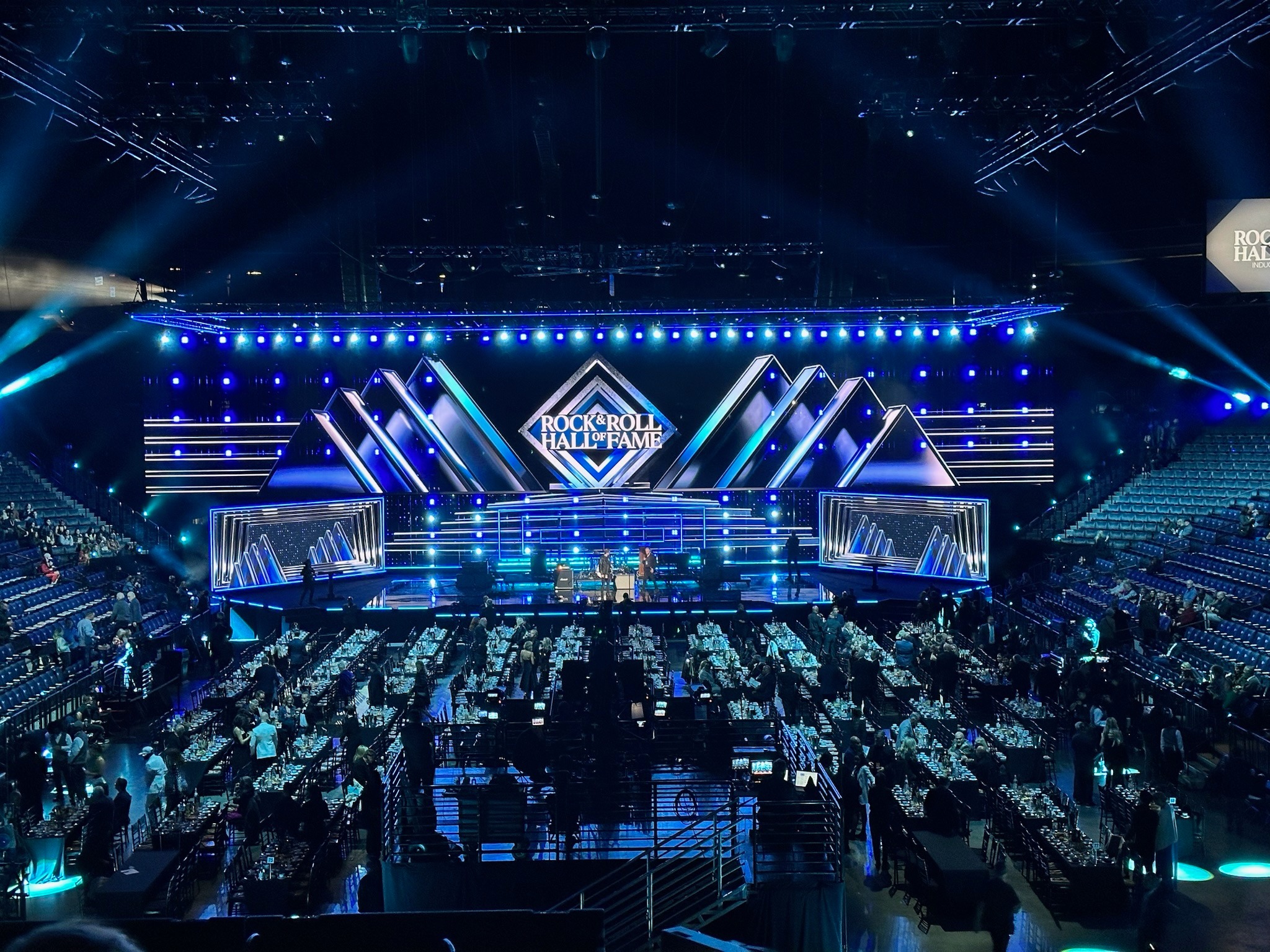 Four hours and twenty-two minutes is quite a long time; about an hour longer than it takes to fly from New York to Miami, almost twice as long as the average NBA game, and even longer than Bruce Springsteen’s longest show, a four hour and six-minute performance that took place in Helsinki in 2012.
Four hours and twenty-two minutes is quite a long time; about an hour longer than it takes to fly from New York to Miami, almost twice as long as the average NBA game, and even longer than Bruce Springsteen’s longest show, a four hour and six-minute performance that took place in Helsinki in 2012.
Yet this year’s Rock & Roll Hall of Fame Induction Ceremony ran that long without a dull moment! There was plenty to captivate the live audience at Barclays Center, as well as those who watched the livestream on Disney+, from the touching (Adam Levine singing “Faith” to honor the late inductee George Michael), to the electrifying, when no one remained seated as Missy Elliot, decked out in a glittering gold suit and backed up by an abundance of dancers, rattled the arena with a fiery medley of her hits.
Supporting the spectacularly diverse marathon (there were 14 inductees, plus an array of special guest performers) was a large, powerful and flexible rig from 4Wall Entertainment that featured 457 CHAUVET Professional fixtures.
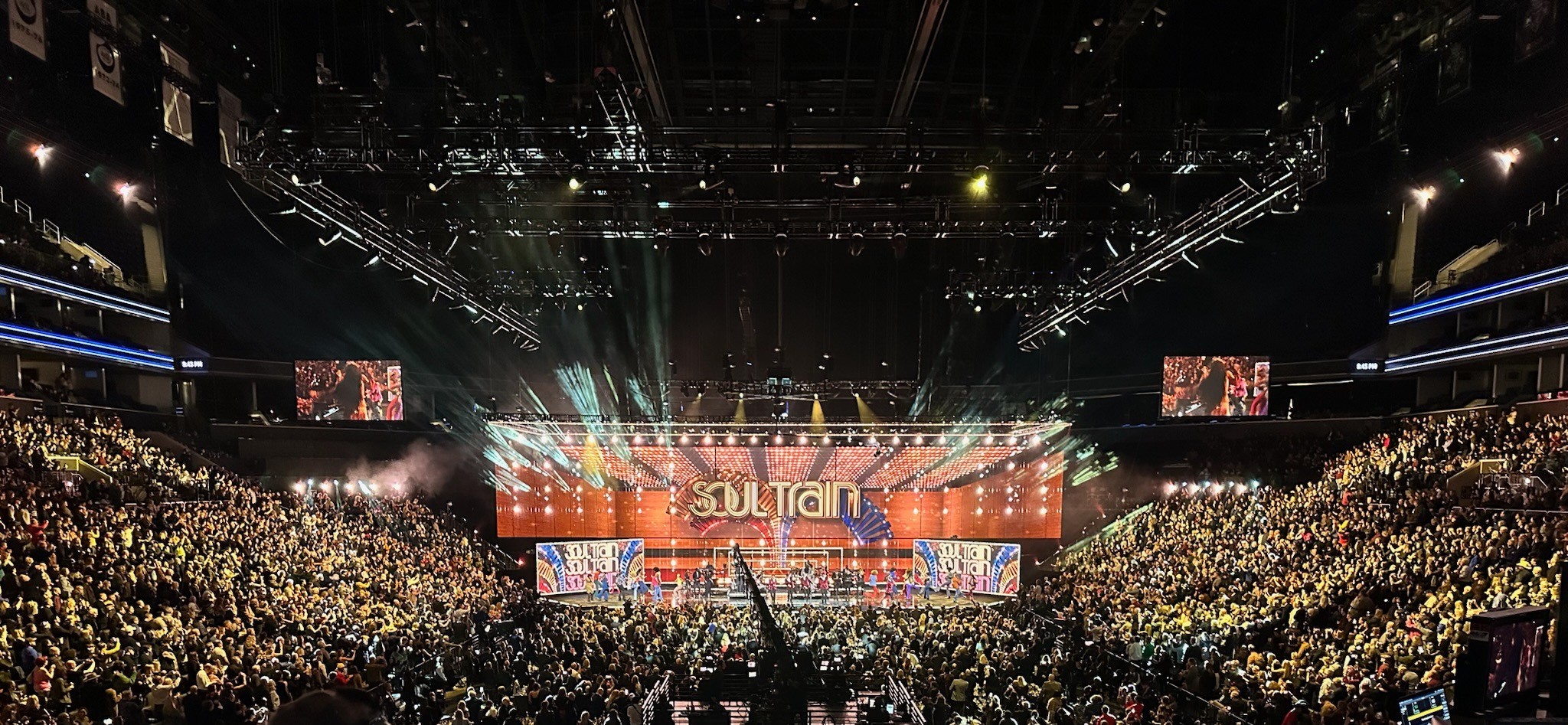 As is invariably the case with any such impressive and massive achievement, the production design for the Rock & Roll Hall of Fame 2023 Induction Ceremony was crafted by many hands. The stage designer was Bruce Rogers. On the lighting side, there were designer Allen Branton, lighting directors Felix Peralta, Kevin Lawson and George Gountas, as well as head gaffer Alex Flores. The compelling video content was created and managed by Bianca Moncada and the team at Darmah.
As is invariably the case with any such impressive and massive achievement, the production design for the Rock & Roll Hall of Fame 2023 Induction Ceremony was crafted by many hands. The stage designer was Bruce Rogers. On the lighting side, there were designer Allen Branton, lighting directors Felix Peralta, Kevin Lawson and George Gountas, as well as head gaffer Alex Flores. The compelling video content was created and managed by Bianca Moncada and the team at Darmah.
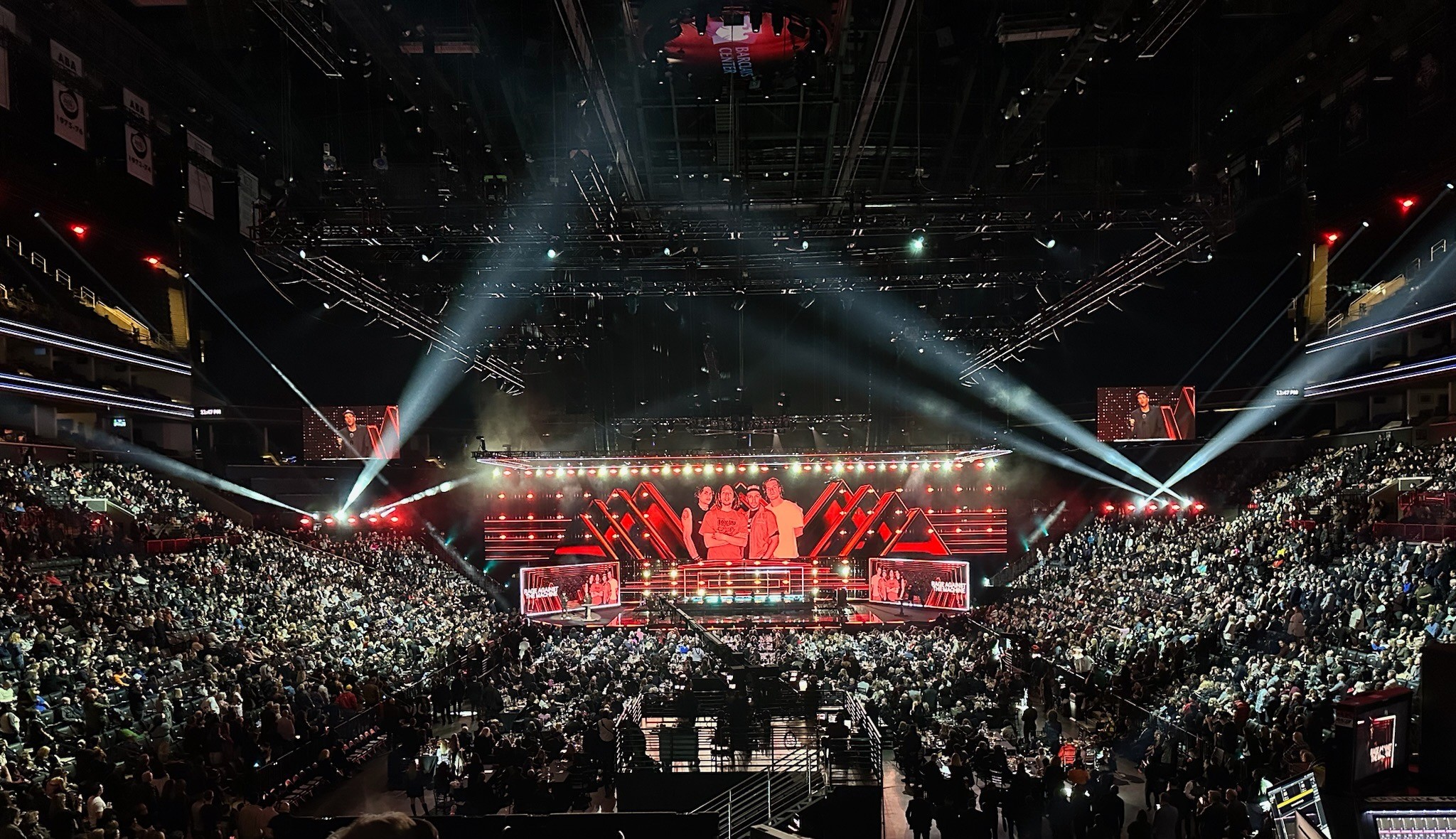 “The people involved in this production have been taking care of the program for many years,” said Branton. “This show was streamed live for the first time, so more rehearsals were needed, but the time allotted to us was the same as last year. This called for an all-out team effort. Everyone stepped up. For example, Alex Flores is always a key man in these death marches. He had to design the installation and bring a huge lighting system to 100-percent readiness in a couple of days.”
“The people involved in this production have been taking care of the program for many years,” said Branton. “This show was streamed live for the first time, so more rehearsals were needed, but the time allotted to us was the same as last year. This called for an all-out team effort. Everyone stepped up. For example, Alex Flores is always a key man in these death marches. He had to design the installation and bring a huge lighting system to 100-percent readiness in a couple of days.”
Helping this diverse show come off smoothy was the versatile Color STRIKE M fixture. The lighting team place 113 of these motorized blinder/strobe/effects units in their rig. “We used them for excitement sometimes and beauty/accent at other times,” said Branton.
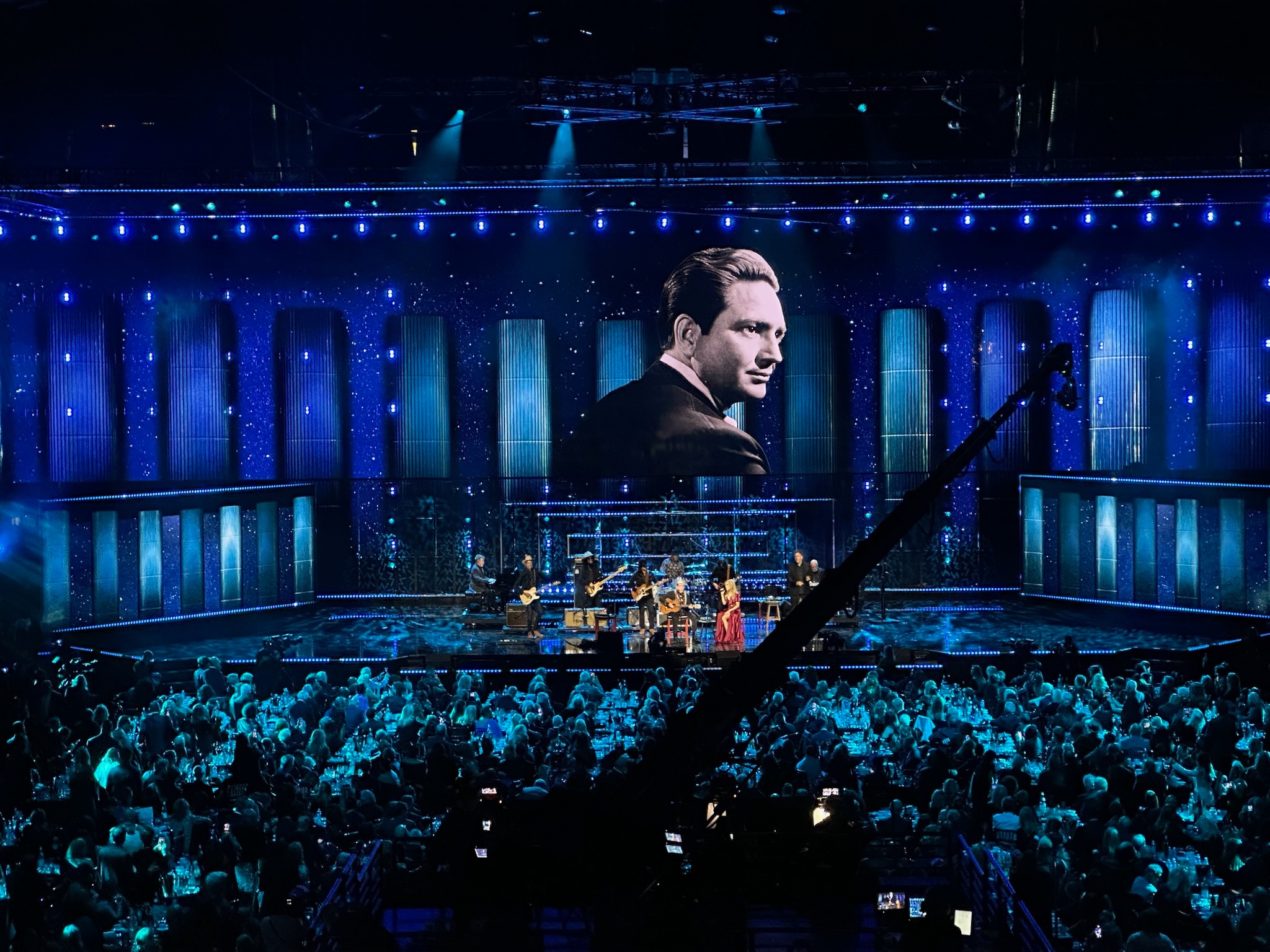 Peralta elaborated: “We had a lot of Color STRIKE Ms available to us, so we could always use the right amount at the right time. We had the majority of them behind the blow-through LED Screens. The remainder of them were peppered all throughout the audience house truss, They pumped up excitement during segments like Missy Elliot’s performance, and added a very delicate touch to other moments, like the George Michaels remembrance number.”
Peralta elaborated: “We had a lot of Color STRIKE Ms available to us, so we could always use the right amount at the right time. We had the majority of them behind the blow-through LED Screens. The remainder of them were peppered all throughout the audience house truss, They pumped up excitement during segments like Missy Elliot’s performance, and added a very delicate touch to other moments, like the George Michaels remembrance number.”
Also in the rig were 30 Maverick MK3 Profile fixtures, which were used to provide key and back lighting. “We relied on them for pretty much all of our key lighting,” said Peralta. Providing geometric frameworks for the stage were 243 EPIX Strip fixtures, while COLORado PXL units outlined the stage apron and created richly colored uplighting.
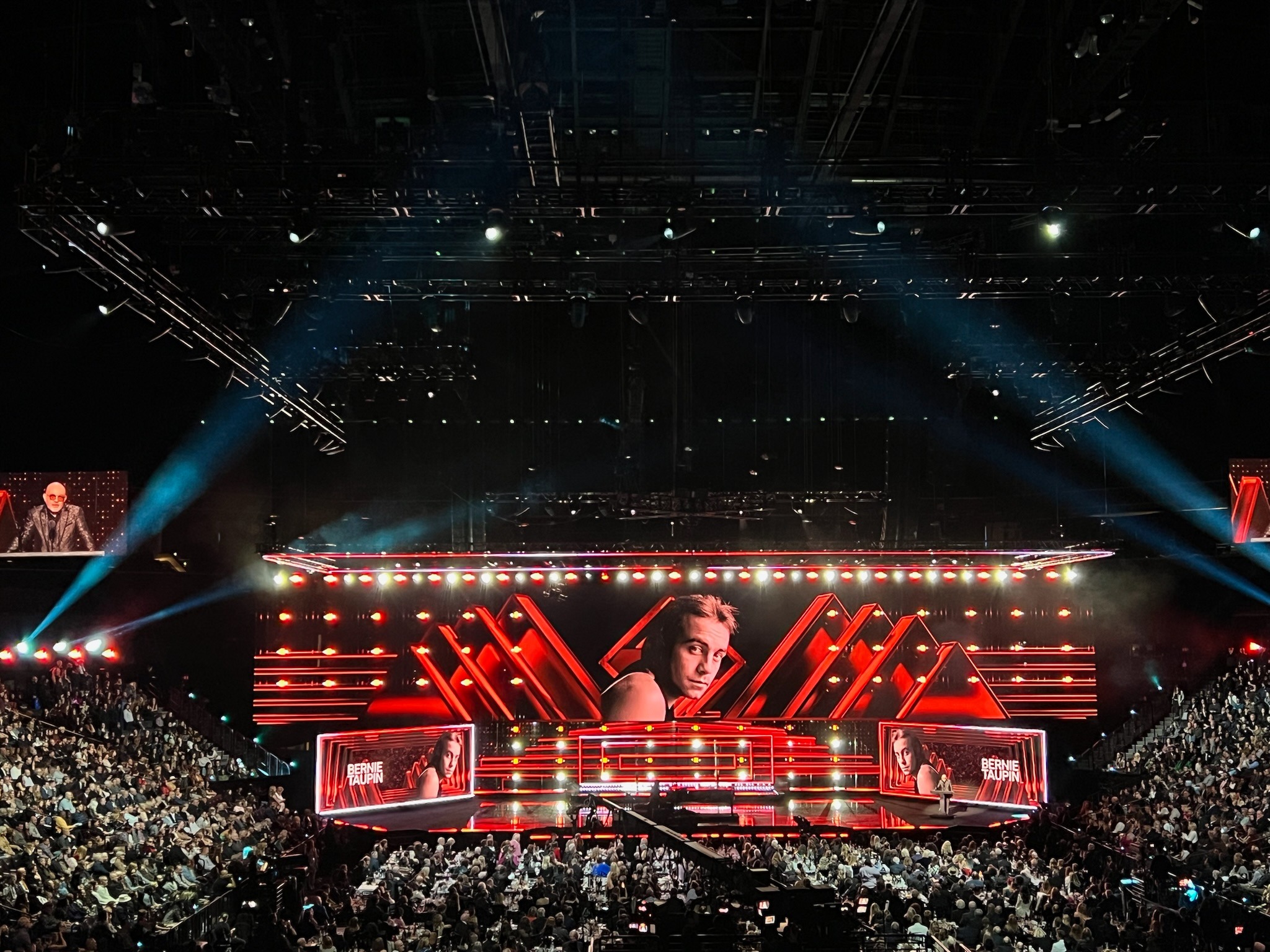
Central to the design concept was a long, horizontally-oriented video wall, which displayed a variety of IMAG and other images. Part blow-through and part nontransparent surface, the video wall dramatically changed the aura and apparent shape of the stage by display different patterns, which ranged from the classically evocative (chandeliers), to the sleek and contemporary. Additionally, the wall added warmth to the stage with historic images of legendary stars like Willie Nelson.
“Certain portions of the screen array were not blow-through, such as those that were used as background for trophy presentation,” said Branton. “Higher resolution was desired in these areas, so the close-up backgrounds wouldn’t look pixelated. Similarly, the big center screen that played the career film packages was opaque, providing high resolution for those film packages.”
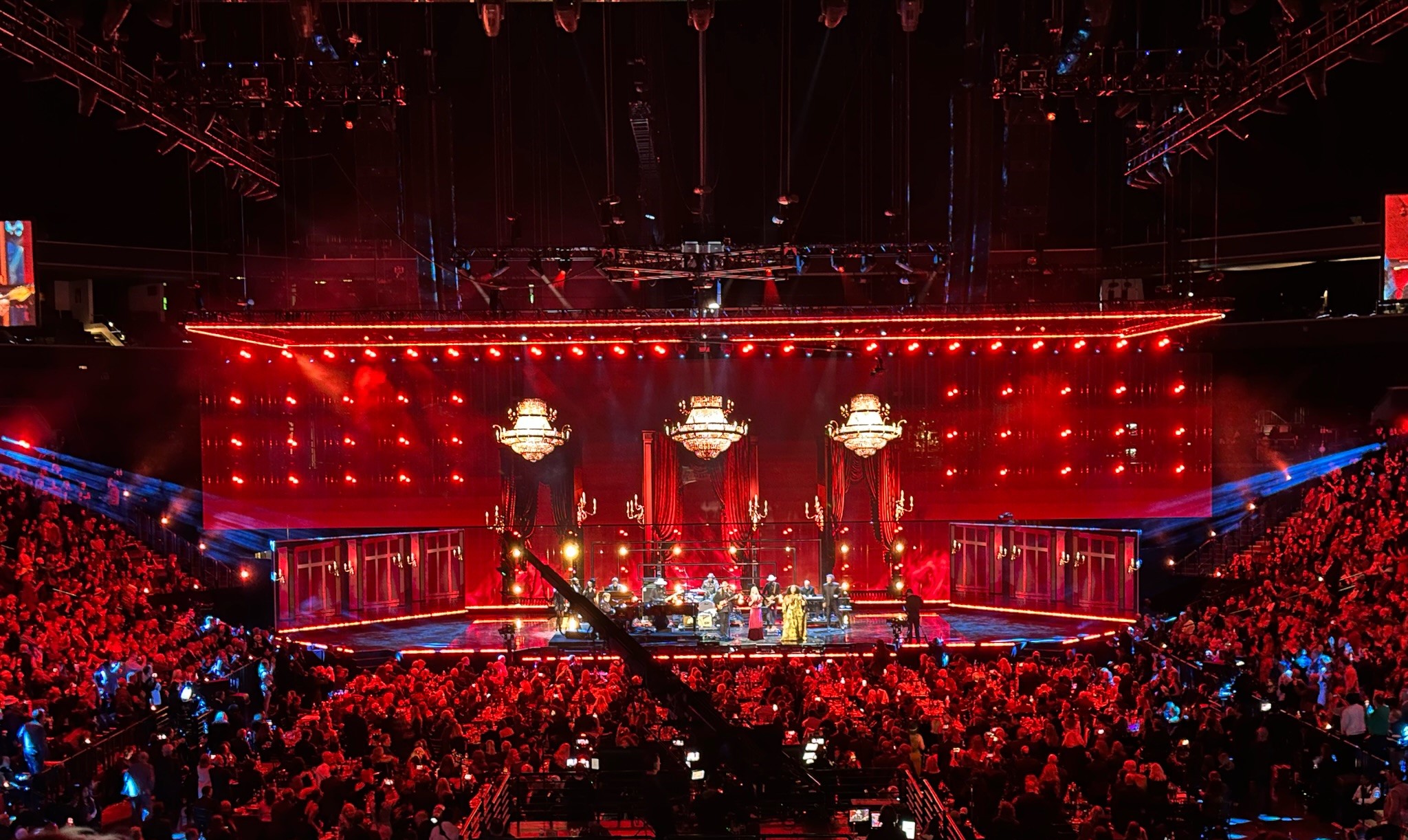 The configuration of the video backdrop, as well as the rest of the design, was created with versatility in mind. “The ‘to the viewer’ architectural shape of the design allowed us to take the shape of the lighting and video story in many directions,” said Peralta.
The configuration of the video backdrop, as well as the rest of the design, was created with versatility in mind. “The ‘to the viewer’ architectural shape of the design allowed us to take the shape of the lighting and video story in many directions,” said Peralta.
Given that the team had to support such diverse talent on stage for over four hours, that was a good thing indeed.